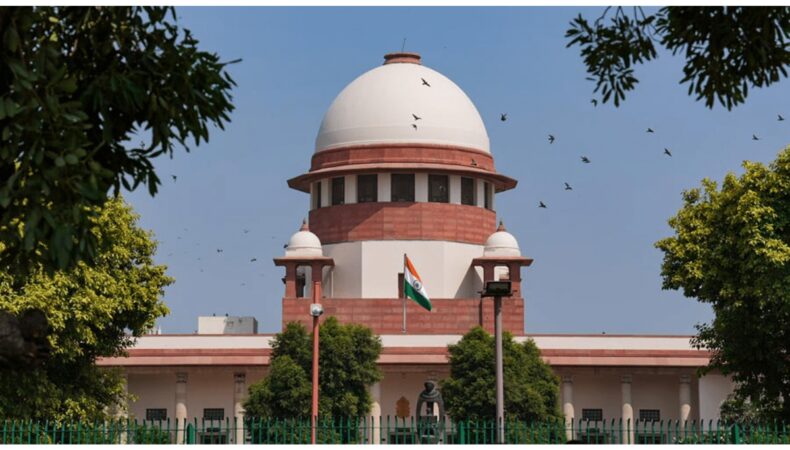The SC Collegium has recommended a list of five judges for elevation to the Supreme Court on Tuesday, December 13. The Collegium consisted of six members and was headed by DY Chandrachud, the Chief Justice of India.
The Collegium comprised Justice Sanjay Kaul, Justice M R Shah, Justice S Abdul Nazir, Justice K M Joseph and Justice Sanjiv Khanna. The recommended judges include Justice Pankaj Mithal, Justice Sanjay Karol, Justice PV Sanjay Kumar, Justice Ahsanuddin Amanullah and Justice Manoj Mishra. Mithal is the Chief Justice of the Rajasthan High Court. Karol and Kumar are the Chief Justices of Patna and Manipur High Courts respectively. Amanullah and Mishra, meanwhile, are the Judges in the Patna and Allahabad High Courts respectively.
What is the Collegium system?
The SC Collegium is a body generally composed of the CJI and the following four senior-most judges in the Supreme Court. But the current Collegium has six members, because of the Third Judges case decision of 1998. According to this, the Collegium would also include the judge who is set to be the next CJI following the current one.

Meanwhile a High Court Collegium comprises the High Court Chief Justice and the four senior most judges. The names recommended by the HC Collegium must pass through the CJI and the SC Collegium. Only then do they reach the government for approval. The government only has a nominal role of approving the names, without having a real role in selection. This helps preserve the independence of the judiciary.
The SC Collegium Conflict
In the recent years, the government has tried to overreach its bounds by attempting to interfere with the Collegium. In 2015, it attempted to pass the National Judicial Appointments Commission Act, which was struck down on the grounds of ensuring the independence of the judiciary. More recently, the government asked the Collegium to “reconsider” twenty recommendations related to appointing the High Court judges.
The judiciary has condemned the government for its overreach, as the bench comprising Justice Kaul, Justice Oka and Justice Nath said, “You cannot hold the names back without stating your reservations. I did not comment on the High Court names since 4 months had not elapsed, but these names are pending since 1.5 years.”
Post the withholding of twenty appointments, the Collegium waited on the appointment of Justice Dipankar Datta as an SC judge before making any new recommendations. The SC now has 28 judges, against the maximum strength of 34 judges.
Furthermore, one of the pending names from the earlier recommendations includes Saurabh Kirpal, an openly gay advocate, who has been recommended for elevation as an HC judge since October 2017. If elevated, he would become the first openly gay HC judge in the country.
The Way Ahead
The recommendations by the Collegium, if accepted, would fill out the vacancies in the top court. This becomes severely important in an overburdened judiciary. CJI Chandrachud has pointed out the structural problem with the functioning of the judiciary, especially with the several vacancies in an overburdened system on numerous occasions, even prior to his elevation. Thus, it is not surprising that he has moved to appoint more judges.
Further, his tenure will see appointment of as many as 17 new judges, making the efforts for the prevalence of the independence of the judiciary even more significant.












